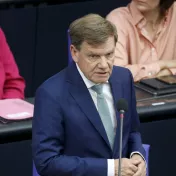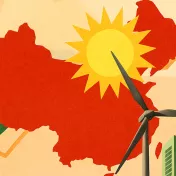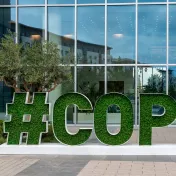One of the greatest challenges the new government in Argentina is currently facing is the ongoing energy crisis. In response, the South-American nation has started to rapidly expand renewable generation. This strategy also pays off internationally for Argentina, who will take over the G20 presidency from Germany in December 2017.
Argentina changed government in December 2015, right in the middle of the COP21 in Paris. Since then the new administration under President Mauricio Macri is working intensively on what they call the re-activation of the economy and Argentina’s return to the international stage. This development was welcomed by many economic sectors as well as by international leaders, and led to rising expectations from investors and civil society. Now, while some of the current reforms provide economic benefits and support businesses and the opening of the country, other measures can put environmental standards and sustainable development at risk.
The new government started on the right foot in terms of the signals and ideas it gave to promote sustainability and innovation - amongst them renewable energy, electric transport, energy efficiency and openness to discuss sensitive environmental issues. At its second day in power and last day of COP21, the government announced its plans to revise and improve its climate commitment; the first part of this process has been conducted in 2016 and will continue to develop in 2017.
Energy is probably the most showcased feature of this new administration given the serious challenges posed by instability and frequent failure of the electricity grid and the imminent energy crisis the country has been facing in the last few years. Argentina generates approximately three quarters of its electricity from heavily subsidized fossil fuels and the energy sector represents around half of the emissions matrix. So far the new administration has shown strong support for renewable energies, committing to install 10.000 Megawatt (MW) of renewable electricity generation over the coming years. The government opened a tender for 1.000 MW in 2016 and got an overwhelming reception with offers worth 6.300 MW. Thereby encouraged to open a follow-up tender for an extra 600 MW, they again received 2.300 MW in offers. If this trend continues, Argentina can easily achieve its 10.000MW target.
Although the promotion of renewables is in line with a pathway towards 1.5°C, some contradictory political decisions remain. Just one month before announcing the goal of 10.000 MW renewable capacity, the government also pledged to add another 10.000 MW of fossil-fuel (mainly gas and oil-fired) thermoelectric power plants. This would lock Argentina in fossil fuel dependence for many more years and on a carbon-intensive development path.
The energy issue in the country is closely linked to fossil fuel subsidies. For many years, despite international oil-prices, Argentina not only secured a minimum price for petrol companies, but also subsidized the consumption of fossil fuels in transport, agriculture industry, domestic and industrial use. These subsidies represent big losses from the national reserves every year. Therefore, achieving independence from fossil fuels is of much interest for economic reasons as well. Although fossil fuel subsidy reform is warranted, it is not popular. The Government has faced severe counter reactions because subsidies removals were too sudden, too big and too short term for most of the small business and households which are not in a position to absorb such strong measures. All this leads to the conclusion that Argentina needs to invest more time and effort into planning a gradual fossil fuel subsidies phase out in parallel with energy efficiency support measures and a renewables phase in.
Another key area for the country is agriculture, historically the most developed sector in the country and responsible for over 60% of Argentina’s exports. Intensive agricultural practices have been one of the main drivers of deforestation, and the land-use sector is responsible for almost half of the greenhouse gas emissions in the country. Just one week after taking office, the new administration has determined the removal of export fees for several crops and a plan to progressively remove soy export taxes in the years to come. While this was very well received in the agriculture sector, because it promotes the diversification of crops and improves the profit margin for farmers, environmental groups keep concerns about increased incentives to continue deforestation in new areas.
The central element missing in the climate related discussions in the country is a Long Term Strategy for Decarbonization, as included in the Paris Agreement under paragraph 19 in article 4, that forms a central ingredient for the 2018 revision of global ambition within the UNFCCC. Developing such a plan for Argentina, addressing the country’s economic challenges and long-term emission trajectory across sectors in parallel would help to create a more consistent national strategy towards sustainable development. Also, with Argentina taking over the G20 presidency in 2018, long term climate strategies should be on the national agenda – as they will be in the spotlight internationally. Enrique Maurtua Konstantinidis is Director for Climate Change at the Argentinian NGO Fundacion Ambiente y Recursos Naturales (FARN) and ad-hoc coordinator of the Climate Action Network International (CAN) Mitigation Group. He has worked on climate policy and international climate negotiations for more than a decade.
Enrique Maurtua Konstantinidis is Director for Climate Change at the Argentinian NGO Fundacion Ambiente y Recursos Naturales (FARN) and ad-hoc coordinator of the Climate Action Network International (CAN) Mitigation Group. He has worked on climate policy and international climate negotiations for more than a decade.
- This article first appeared on www.klimaretter.info -




